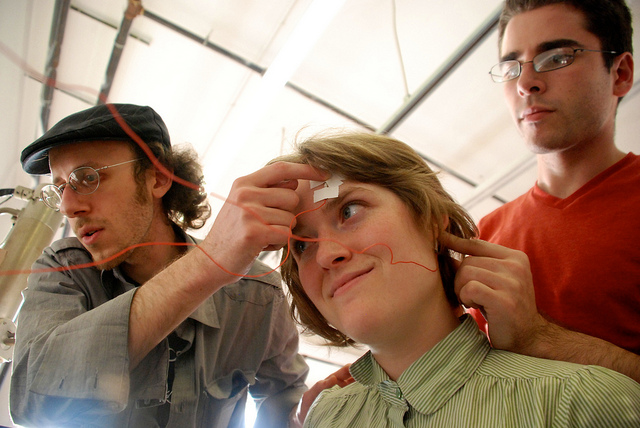Neurofeedback trains people to alter their brainwave patterns. This therapy developed from biofeedback, which trains people to control normally autonomic body functions. Biofeedback has taught people to slow their heart rates and lower blood pressure. Neurofeedback takes a similar approach, changing abnormal brainwave activity associated with addiction. Brainwaves and Substance Abuse To understand neurofeedback, you need to know a little about brainwaves. Neurologists recognize four different types of brainwaves: alpha, beta, delta, and theta brainwaves. Alpha waves are long, slow brainwaves associated with relaxation. Beta waves are shorter and faster than alpha waves, and they create a sense of alertness and mental acuity. Theta waves indicate deep relaxation, such as the state you experience between waking and sleeping. Delta waves occur during dreamless sleep. Addiction affects alpha, beta, and theta brainwaves. EEG scans of addicts’ brains indicate abnormally high levels of beta waves with lower-than-normal theta and alpha waves. These changes significantly alter your loved one’s ability to relax and perform cognitive tasks while encouraging impulsive and reactive actions. These brainwave abnormalities appear even after periods of abstinence, and they can also be seen in the children of addicted parents, suggesting a hereditary nature to brainwave activity. Retraining the Addicted Brain Neurofeedback plays an increasingly important role in substance abuse rehab. Non-invasive electrodes attached to the client’s scalp record brainwaves. A computer screen allows the brainwave activity to be viewed. Amazingly, people can influence their brainwave patterns by watching the activity on the computer screen, lowering beta waves while increasing levels of theta and alpha waves. At first the changes only last for short periods, but, with practice, the person can control brainwave activity for longer and longer periods. Eventually the new brainwave patterns become habit. Combined with other forms of therapy, neurofeedback improves treatment outlook and lowers the risk of relapse. Photo: Lisa Brewster

